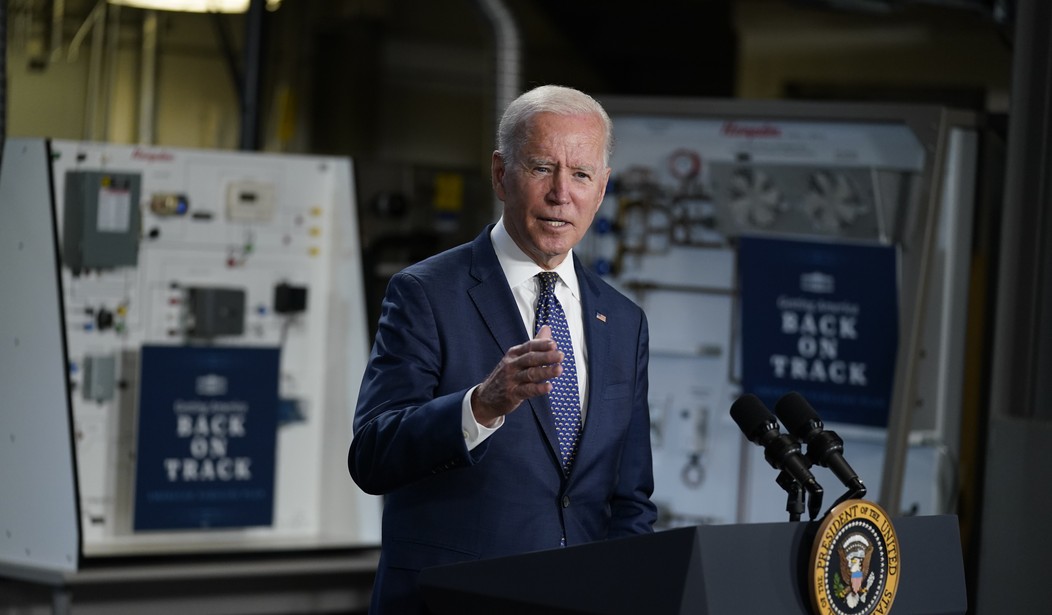Death has sadly been on the minds of many Americans this past year. Hundreds of thousands have been lost in the U.S. alone to coronavirus, including many more across the globe. This time has been unimaginably difficult for so many who have lost loved ones. Unfortunately, as the pandemic winds down, the Biden administration is proposing a tax hike that would make sure Americans are taxed twice in the event of a death in the family. So, while people may only die once, their family or loved ones would have to pay twice.
Given the way this tax hike is structured, the government has ensured not even death provides an adequate escape. The proposal would eliminate what’s known as the “stepped up basis rule.” This rule shifts the base valuation of an asset that is inherited after the passing of a loved one. For example, if someone inherits a home that was worth $200,000 at initial purchase, but is worth $1 million at the time of the owner’s death, under the step up rule the new owner’s gains on the property would be based on the $1 million valuation.
In such a scenario – without the step up rule – the inheritor would be subject to the 40 percent estate tax and would then have to pay the 39.6 tax – up from the current 20 percent – on an $800,000 “capital gain.” This works out to a roughly 64 percent tax before anything else happens. Losing a loved one is difficult enough without worrying about the government potentially decimating their estate and leaving the family to worry about the rest. This proposal would act as a second, more insidious death tax.
To pay the tax on that “$1 million” house would most certainly involve the selling of that house in order to pay the tax. Therefore, nothing is actually inherited. Now, imagine a small business that was supposed to be handed down to the next generation and all of the assets were to be sold to pay the tax. That business would be gone.
This is even more outrageous when considering the fact that the assets being inherited are the product of after-tax income. Not only is it taxed every year through the basic income tax, but will be taxed again through the estate tax, and again through this modified capital gains tax. Far from being compassionate toward the grieving, this proposal makes sure their bereavement is a nightmare for so many more reasons.
Recommended
As is most often the case in Washington, this tax increase proposal will adversely impact Americans beyond its intended target. These unintended consequences will ultimately stifle investment in the economy and do lasting damage to America’s small business community.
The Biden administration markets this tax as raising the rates on the ultra-wealthy. It would take the current capital gains tax rate from 20 percent to 39.6 percent. This tax would only apply to those making more than one million dollars. That seems simple and straightforward enough. However, this does not spare families that are asset rich (to meet the threshold) but cash poor and unable to pay. The devil is in the details, and this proposal is riddled with secondary provisions that will make this tax hike a nightmare for many Americans.
First, considering other taxes on investments – as well as state and local rates – the average effective capital gains rate will go up to just under 50 percent if the administration’s proposal passes. In fact, for thirteen states, as well as the District of Columbia, the combined capital gains rate would be over 50 percent. Residents of New York City, for example, would pay a top rate of 58.2 percent. This is gratuitous.
The capital gains tax increase is insidious enough. More concerning is a proposal floating around the halls of Congress that would make it retroactive. Under the proposal, investors would have to pay the new rate on investments that were made as early as 2005. This violates a number of policy norms. Investors made investment decisions based on information available to them at the time. Many would likely have avoided the risk had they known they might soon be on the hook for a 50 percent bill. Further, given the passage of time, many Americans will have to pay taxes on assets they no longer own.
All of this reflects a massive misunderstanding about what “wealth” is and what it is not. The common understanding of wealth in the halls of Congress – as well as the White House – seems to be that net worth symbolizes liquid cash on hand. That could not be further from the truth. Net worth includes resources on hand, like property and equipment. For example, a business owner can’t pay the government 40 percent of a forklift. They will either have to sell off resources they need or sell off the business altogether.
This will inevitably harm small businesses. By creating this nightmare set of tax laws that go hand-in-hand with investment, it is no stretch to say that many investors will decide it is not worth supporting American startups or small businesses. The reward has no longer become worth the risk. The same businesses who have struggled mightily this last year will lose yet another lifeline, thanks to the administration’s proposal.
The federal government does need to consider how to pay for its exorbitantly expensive proposals. However, with proposals like these, it will be the American people who are paying for it for years to come, especially those dealing with family heartbreak. Despite the rhetoric, millionaires and non-millionaires alike will be holding the bag. The key difference is that the millionaires are the ones who might be able to afford it.
Daniel Savickas is a policy analyst for the Taxpayers Protection Alliance.
























Join the conversation as a VIP Member